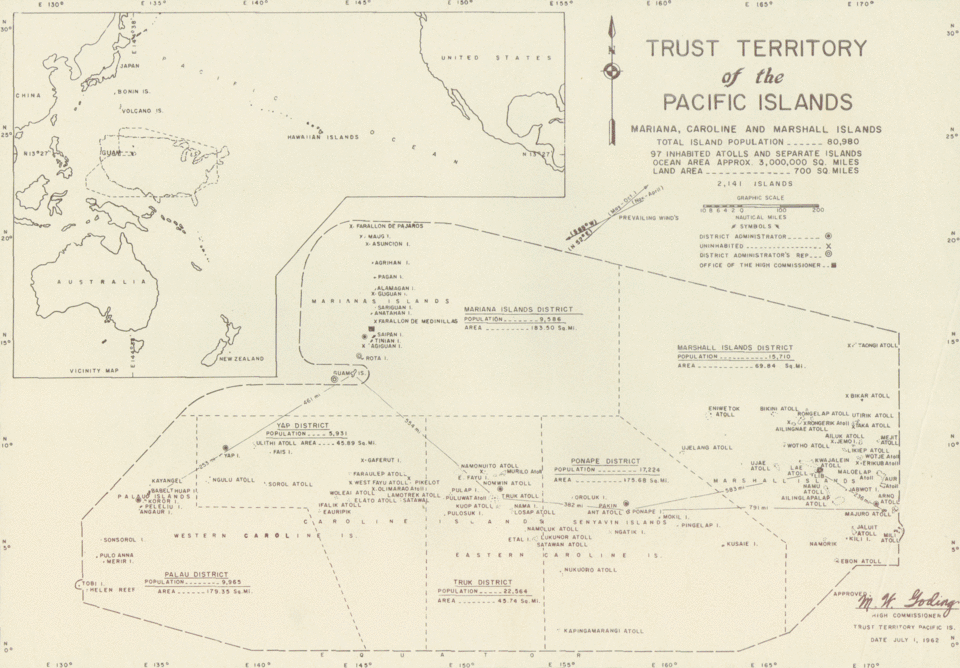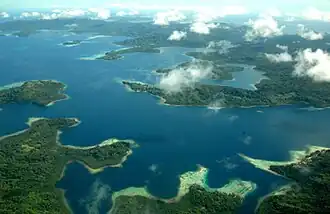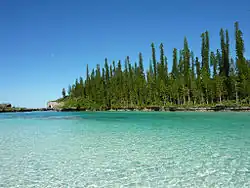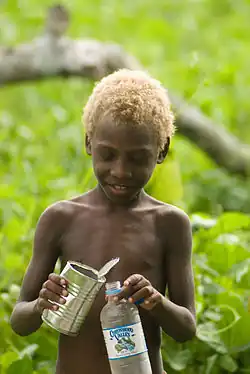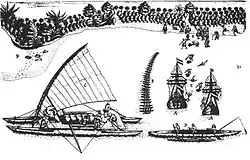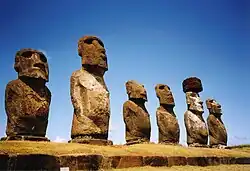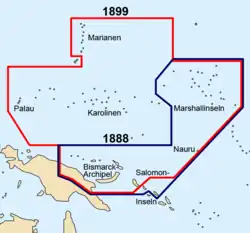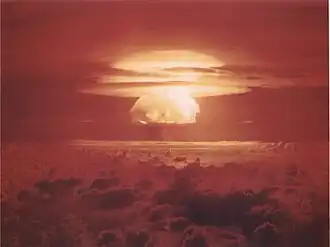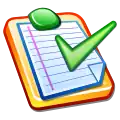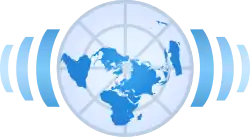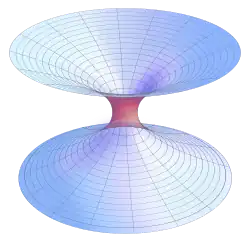Portal:Oceania
The Oceania PortalOceania (UK: /ˌoʊsiˈɑːniə, ˌoʊʃi-, -ˈeɪn-/ OH-s(h)ee-AH-nee-ə, -AY-, US: /ˌoʊʃiˈæniə, -ˈɑːn-/ ⓘ OH-shee-A(H)N-ee-ə) is a geographical region including Australasia, Melanesia, Micronesia, and Polynesia. Outside of the English-speaking world, Oceania is generally considered a continent, while Mainland Australia is regarded as its continental landmass. Spanning the Eastern and Western hemispheres, at the centre of the water hemisphere, Oceania is estimated to have a land area of about 9,000,000 square kilometres (3,500,000 sq mi) and a population of around 46.3 million as of 2024. Oceania is the smallest continent in land area and the second-least populated after Antarctica. Oceania has a diverse mix of economies from the highly developed and globally competitive financial markets of Australia, French Polynesia, Hawaii, New Caledonia, and New Zealand, which rank high in quality of life and Human Development Index, to the much less developed economies of Kiribati, Papua New Guinea, Tuvalu, Vanuatu, and Western New Guinea. The largest and most populous country in Oceania is Australia, and the largest city is Sydney. Puncak Jaya in Indonesia is the highest peak in Oceania at 4,884 m (16,024 ft). The rock art of Aboriginal Australians is the longest continuously practiced artistic tradition in the world. Most Oceanian countries are parliamentary democracies, with tourism serving as a large source of income for the Pacific island nations. (Full article...) Selected geographic article -Rarotonga is the largest and most populous island of the country of the Cook Islands. The island is volcanic, with an area of 67.39 km2 (26.02 sq mi), and is home to 72% of the country's population, with 10,898 of a total population of 15,040. The chief town, Avarua, on the north coast, is the location of the Parliament buildings and the capital of the Cook Islands. The country's international airport is also in Avarua, and Rarotonga is a popular tourist destination, with many resorts, hotels and motels. Captain John Dibbs, master of the colonial brig Endeavour, is credited as the European discoverer on 25 July 1823, while transporting the missionary Reverend John Williams. (Full article...) Related portalsSelected article -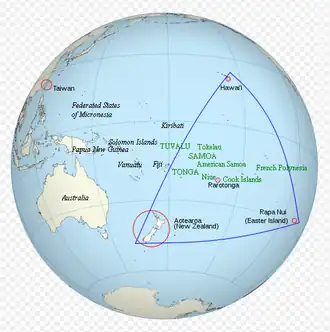 The Polynesian Leaders Group (PLG) is an international governmental cooperation group bringing together four independent countries and eight self-governing territories in Polynesia. The idea of a Polynesian regional grouping had been discussed for several years, notably in response to the Melanesian Spearhead Group, a regional grouping for countries in Melanesia. In September 2011, Samoan Prime Minister Tuilaepa Sa’ilele Malielegaoi initiated a meeting with the leaders of Tonga, Tuvalu, the Cook Islands and Niue on the margins of the Pacific Islands Forum summit in Auckland. These initial talks led to a second meeting in Apia which, on 17 November, led to a memorandum of understanding formally establishing the Polynesian Leaders Group (PLG). (Full article...) Did you know -
General images -The following are images from various Oceania-related articles on Wikipedia.
TopicsSubcategoriesSelect [►] to view subcategories
Oceania Countries in Oceania Dependent territories in Oceania Regions of Oceania Oceania-related lists Oceanian portals Administrative divisions in Oceania Asia-Pacific Buildings and structures in Oceania Culture of Oceania Economy of Oceania Education in Oceania Environment of Oceania Ethnic groups in Oceania Geography of Oceania Government in Oceania Health in Oceania History of Oceania Maps of Oceania Organizations based in Oceania Politics of Oceania Science and technology in Oceania Oceanian society Oceania stubs Things you can do
Associated WikimediaThe following Wikimedia Foundation sister projects provide more on this subject:
In other languagesWikipedia in other languages used in Oceania:
More portalsDiscover Wikipedia using portals
|
.svg.png)
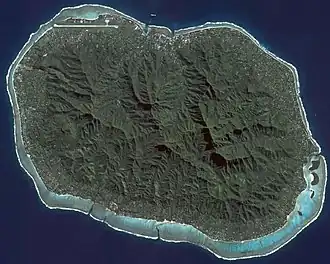
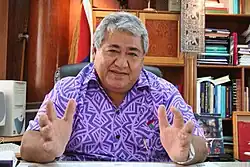
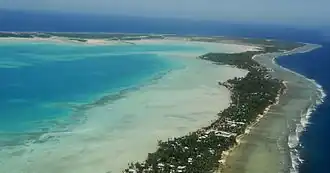
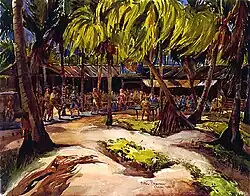
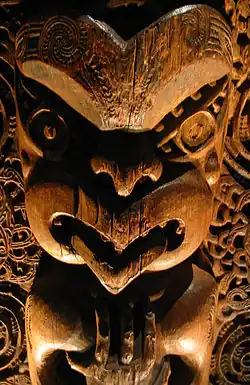
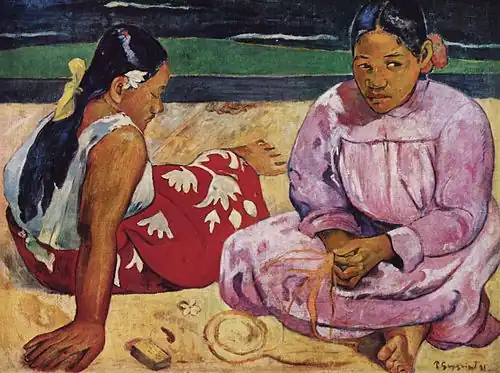
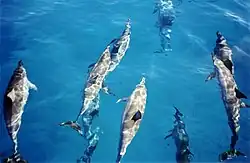




.svg.png)
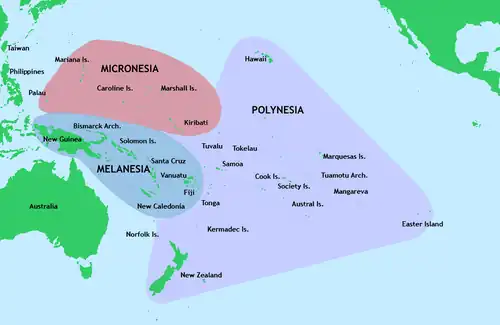
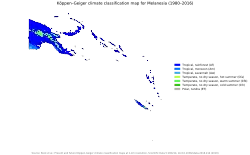
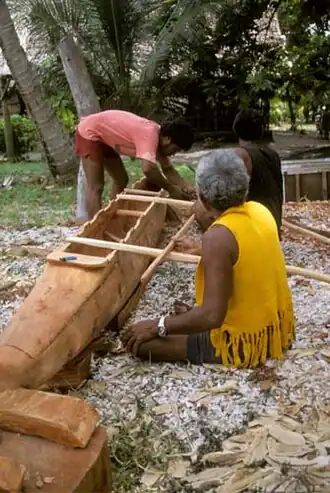
.jpg)
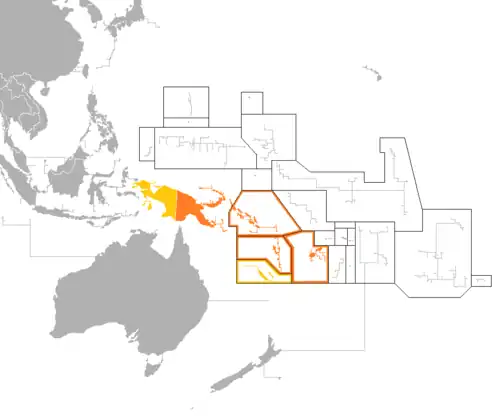
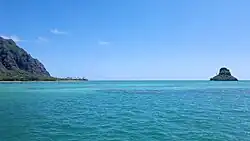

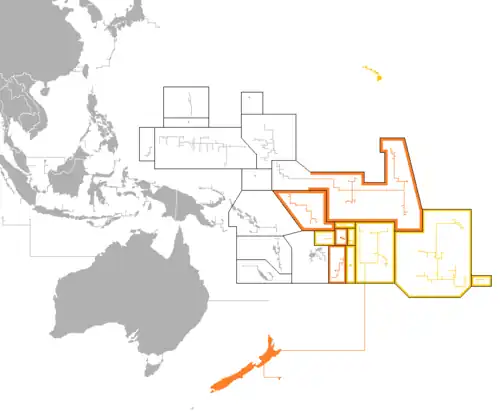
.jpg)
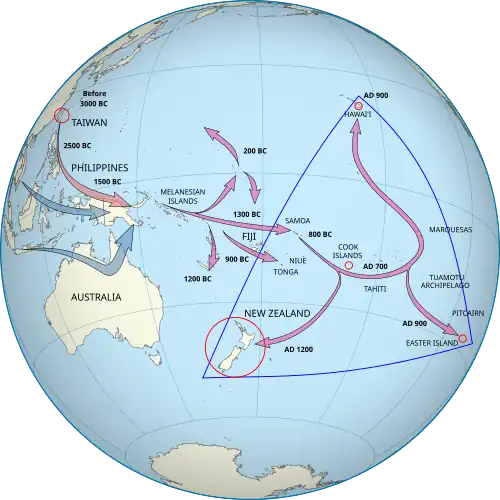

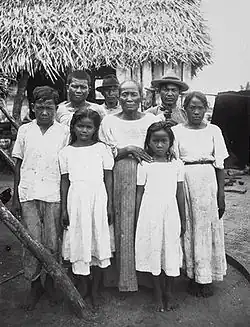
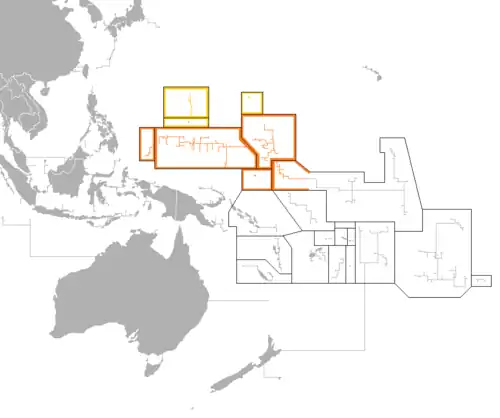
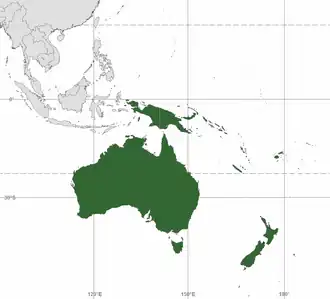
.jpg)
%252C_Temple_du_Roi_dans_la_baie_Tiritat%C3%A9a_(c._1816%252C_published_1822).jpg)
